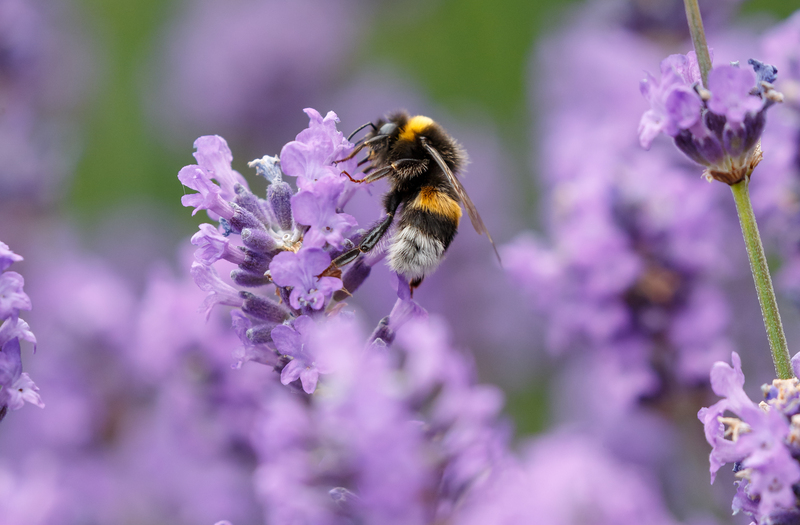Rise and Bloom: 9 Essential Tips for New Gardeners
Posted on 19/09/2025
Rise and Bloom: 9 Essential Tips for New Gardeners
Welcome to the wonderful world of gardening. Whether you've just picked up your first trowel or you're considering how to plant your very first seed, the journey ahead can be as rewarding as it is transformative. Giving life to a garden brings not only beauty to your surroundings but also relaxation, fresh food, and a deep sense of accomplishment.
But, like any craft, gardening comes with its own set of challenges and learning curves. That's why we've created this comprehensive guide--'Rise and Bloom: 9 Essential Tips for New Gardeners'--to help beginners build a thriving garden from the ground up. From soil selection to seasonal hacks, discover everything you need to set your garden on the path to flourishing success.
1. Understand Your Growing Environment
Before you start digging or planting, it's crucial to assess your unique gardening environment. Where you live affects everything from the types of plants you can grow to how often you need to water. Here's how you can get started:
- Know Your Plant Hardiness Zone: The USDA Hardiness Zone Map tells you which plants will and won't survive in your region.
- Assess Sunlight Exposure: Track how sunlight moves through your space during the day. Most vegetables need 6-8 hours of direct sunlight daily.
- Check Soil Drainage: Does your soil hold puddles after rain, or does water flow right through? Understanding this helps prevent over or under-watering.
Discover these basics early on, and your gardening journey will start on much firmer and more fruitful ground.

2. Select the Right Tools for New Gardeners
A gardener's toolkit doesn't need to be extensive, but a few quality pieces make all the difference. Invest in durable, comfortable tools that are essential for most tasks. Here's a beginner's must-have list:
- Trowel: For digging, planting, and potting.
- Pruning Shears: To keep plants healthy and well-shaped.
- Garden Gloves: To protect your hands from thorns and blisters.
- Watering Can or Hose: For proper irrigation.
- Rake: To clear debris and smooth beds.
Investing in quality tools from the start encourages safe and efficient gardening practices.
3. Test and Enrich Your Soil
The soil is your garden's foundation. Some plants thrive in clay, while others need sandy or loamy soil. For the best start:
- Test your soil with kits from local garden centers. Check pH and nutrients like nitrogen, phosphorus, and potassium.
- Add compost--it enhances soil structure and provides slow-release nutrients.
- Utilize organic mulch to promote moisture retention and suppress weeds.
Sound soil preparation is fundamental to the success of new gardeners--even before the first seed is sown!
4. Choose Beginner-Friendly Plants
Starting with easy-to-grow plant varieties helps you develop confidence and master basic techniques. Some hardy favorites for beginner gardeners include:
- Marigolds and Zinnias: Low-maintenance, thrive in full sun.
- Sunflowers: Fast-growing and kid-friendly.
- Herbs like basil, mint, and parsley: Easy to grow and useful in the kitchen.
- Lettuce and Radishes: Quick to harvest and forgiving of minor mistakes.
- Succulents: Require little water and add variety.
Opting for resilient starter plants ensures you experience early wins and learn essential care techniques.
5. Master the Art of Watering
Both overwatering and underwatering are common new gardener mistakes. Here's how to strike the right balance:
- Check soil regularly: Touch it to gauge moisture; most plants prefer slightly damp, but not soggy, soil.
- Water early in the day: This minimizes evaporation and fungal diseases.
- Use mulch: Organic mulch keeps moisture levels steady and reduces weed competition.
- Focus on the roots: Water at the base of plants rather than from above.
Proper hydration is one of the top essential tips for new gardeners as consistency can make or break your garden's health.
6. Understand Plant Spacing and Arrangement
Plants need space to rise and bloom. Crowded seedlings compete for resources and struggle to develop. For budding gardening enthusiasts:
- Follow seed packet instructions: Each plant has unique spacing requirements, whether you grow from seeds or seedlings.
- Cluster by growth habits: Group plants according to height and spread for optimal sun and air flow.
- Practice companion planting: Some plants, like tomatoes and basil, benefit when planted near each other.
Giving your garden a considered arrangement sets the stage for healthy, robust plant growth.
7. Start Small and Scale Up
Ambition is admirable, but it's wise for new gardeners to begin with a manageable area. Here's why small beginnings bear the best blooms:
- Easy maintenance: Small plots or containers are less overwhelming and require less daily care.
- Observe and learn: It's easier to notice and address pest issues or diseases in a controlled space.
- Success breeds enthusiasm: Master basic skills, then expand with confidence season by season.
Remember, a humble window box or a few raised beds can be just as rewarding as a sprawling garden!
8. Be Pest and Disease Prepared
Every new gardener deals with weeds, pests, and plant diseases at some point. Prevention and early intervention keep problems manageable.
- Practice crop rotation: Minimize recurring pests and soil depletion by changing what you plant in each spot every year.
- Inspect plants regularly: Look for chewed leaves, discoloration, or wilting.
- Embrace beneficial insects: Ladybugs and bees help control pests and pollinate crops.
- Use organic methods: Neem oil, insecticidal soaps, or hand-picking pests are eco-friendly options.
Keeping a garden journal of outbreaks and solutions will turn every setback into a valuable learning experience for novice gardeners.
9. Cultivate Patience and Keep Learning
Gardening is a living classroom. There are no failures, only lessons. Some seasons, your flowers won't bloom or your tomatoes suffer. That's part of the magic and mystery:
- Document your progress: Take notes and photos to track what works and what doesn't.
- Connect with local gardeners: Join online forums, social media groups, or community gardens for advice and inspiration.
- Read and research: Gardening is always evolving. Popular gardening blogs, books, and YouTube channels offer a wealth of knowledge.
- Enjoy the journey: Celebrate your successes and have grace for your struggles.
With every attempt, your gardening skills will rise and your confidence will bloom.
Bonus Tips: Embrace Sustainability from the Start
- Start a compost bin: Recycle food scraps and yard waste into nutrient-rich soil.
- Collect rainwater: Use barrels to harvest rainwater for eco-friendly irrigation.
- Choose native plants: Local species require less water and attract pollinators.
Practicing sustainable gardening benefits your plants, your health, and the planet.

Frequently Asked Questions for New Gardeners
What's the easiest vegetable for beginners to grow?
Radishes, lettuce, and green beans are all beginner-friendly and deliver quick harvests.
How often should I water my new garden?
Most gardens thrive with 1 inch of water per week, but frequency depends on the plant type, soil, and weather. Always check the soil moisture before watering.
When is the best time to start gardening?
Spring is ideal for most regions, but some plants, like lettuce, can be started in late winter indoors. Local garden centers can advise on the best planting windows for your area.
Conclusion: Let Your Garden Rise and Bloom
Venturing into the world of gardening is a beautiful commitment to nature, creativity, and lifelong growth. By following these 9 essential tips designed especially for new gardeners, you'll lay a strong foundation for a thriving, sustainable haven.
Remember, every flourishing backyard, lush balcony, or window box garden started with a single step and a seed of determination. Let your confidence grow, celebrate every sprouting green, and enjoy the peace and pride your flourishing garden brings.
Now it's your turn--pick up your trowel, sow your seeds, and let your garden rise and bloom!
Latest Posts
5 Peaceful and Pocket-Friendly Low Maintenance Garden Tips
Rise and Bloom: 9 Essential Tips for New Gardeners
Tending Gardens, Tending the Planet: A Climate Perspective



